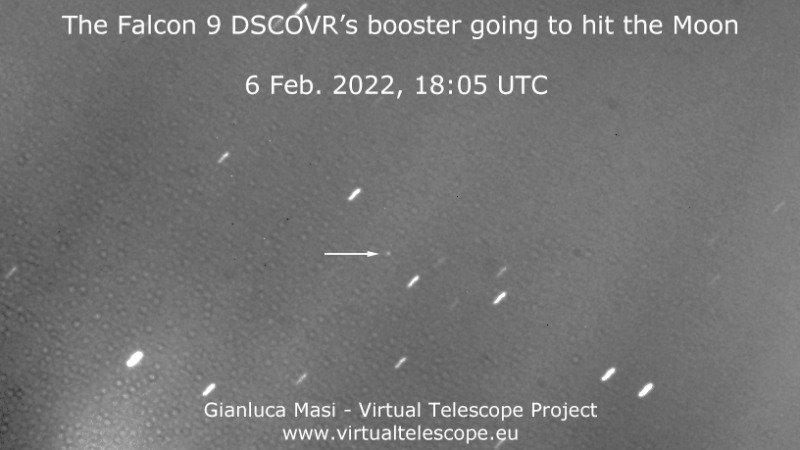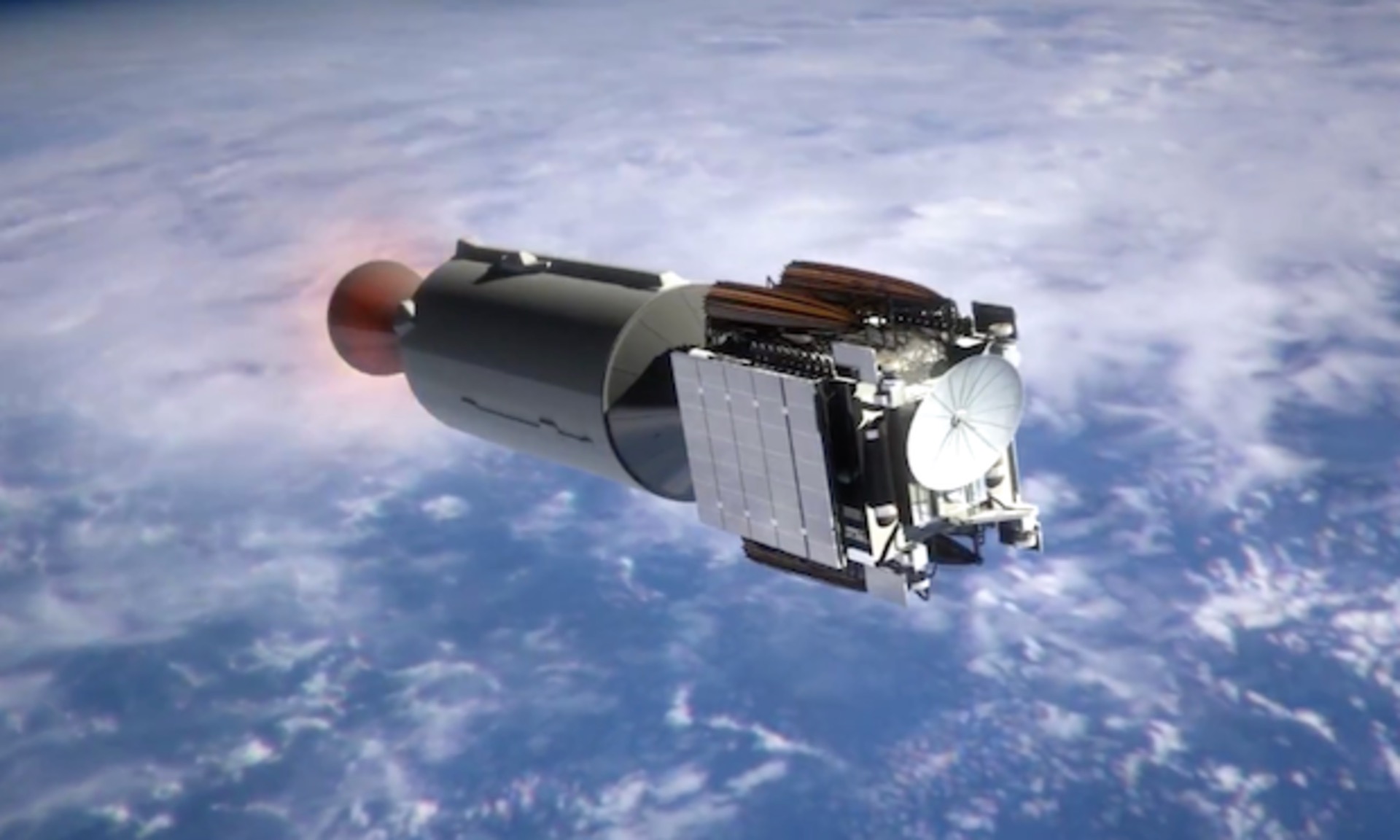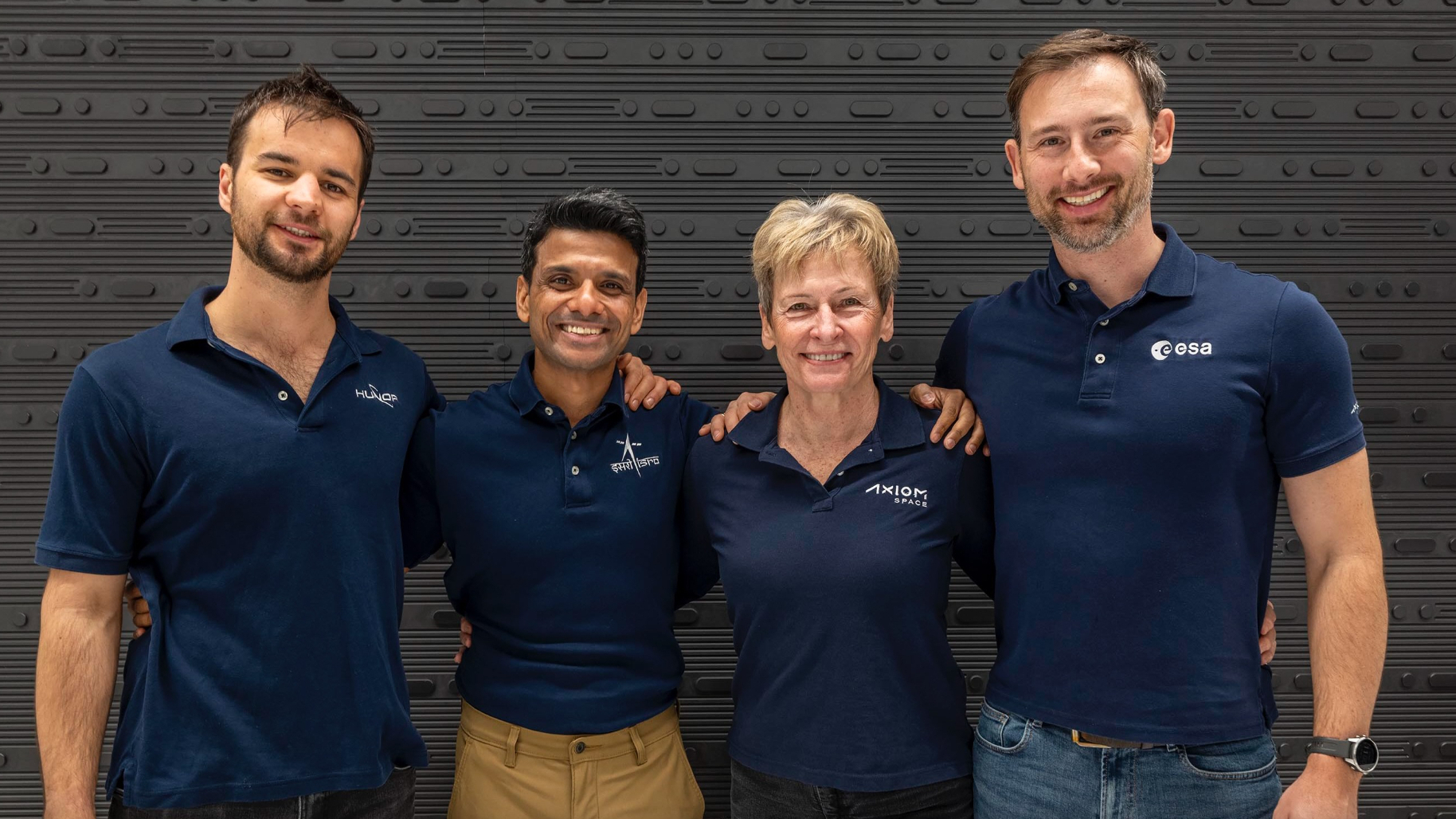SpaceX rocket stage on a collision course with the moon captured in telescope images
The Falcon 9 rocket stage will crash into the moon on March 4.
If you spot SpaceX's Falcon 9 booster in a telescope before it hits the moon, let us know! Send images and comments in to spacephotos@space.com.
A SpaceX rocket's upper stage was caught on camera careening toward a collision course with the moon.
Virtual Telescope Project founder Gianluca Masi caught the Falcon 9 rocket upper stage using a single 60-second exposure remotely taken using a 17-inch (43 centimeters) PlaneWave telescope in Rome. You can spot the stage amid a few "star streaks" induced from the telescope tracking the rocket stage in the sky.
"There was a very strong light and moon interference, and grabbing DSCOVR was quite hard," Masi said in a statement. "We also noticed the booster is spinning fast (period on the order of 10 seconds), showing very [noticeable] brightness fluctuations."
Video: SpaceX booster to slam into moon, seen by Virtual Telescope Project
Related: See the SpaceX Falcon 9 booster on a collision course with the moon in a live webcast

Here it the Falcon 9 DSCOVR’s booster, going to hit the Moon early next March. See how it blinks while tumbling! pic.twitter.com/X35DaN7n4CFebruary 7, 2022
DSCOVR refers to the name of the mission, called the Deep Space Climate Observatory. It was a joint effort led by the U.S. National Oceanic and Atmospheric Administration (NOAA) and NASA that launched in February 2015 from what was then called Cape Canaveral Air Force Station, on the east coast of Florida.
During launch, the upper stage depleted its fuel and was unable to return to Earth. For the past seven years it has been in an uncontrolled orbit, due to competing gravitational forces of the Earth, moon and sun.

The rocket stage is now expected to slam into the far side of the moon on March 4 at 7:25 a.m. EDT (1225 GMT), and it won't be visible from Earth. However, the Rome-based Virtual Telescope Project plans to offer a pair of live webcasts to discuss the mission.
Breaking space news, the latest updates on rocket launches, skywatching events and more!
The free, live webcast on Tuesday (Feb. 8) is available online, beginning at 1 p.m. EDT (1800 GMT). Because the live webcast depends on weather conditions, the schedule could change.
Follow Elizabeth Howell on Twitter @howellspace. Follow us on Twitter @Spacedotcom or on Facebook.
Join our Space Forums to keep talking space on the latest missions, night sky and more! And if you have a news tip, correction or comment, let us know at: community@space.com.

Elizabeth Howell (she/her), Ph.D., was a staff writer in the spaceflight channel between 2022 and 2024 specializing in Canadian space news. She was contributing writer for Space.com for 10 years from 2012 to 2024. Elizabeth's reporting includes multiple exclusives with the White House, leading world coverage about a lost-and-found space tomato on the International Space Station, witnessing five human spaceflight launches on two continents, flying parabolic, working inside a spacesuit, and participating in a simulated Mars mission. Her latest book, "Why Am I Taller?" (ECW Press, 2022) is co-written with astronaut Dave Williams.
